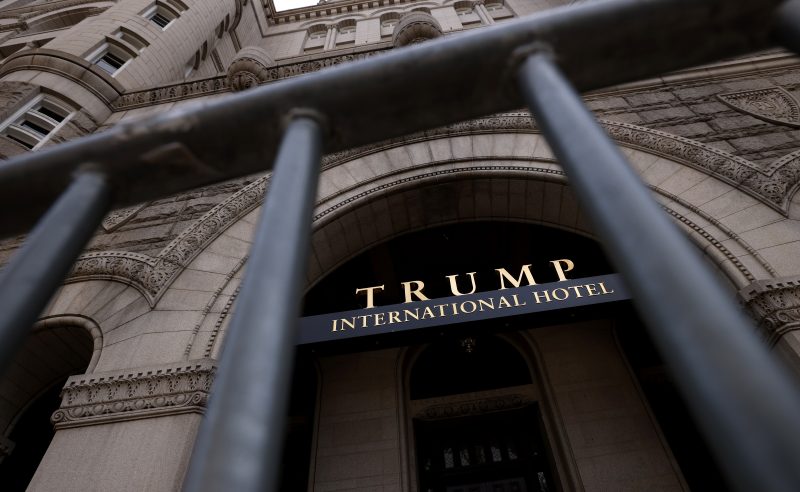While executing their duties, U.S. Secret Service personnel who protected former President Donald Trump and his family during travels, reportedly faced exorbitantly high charges from Trump’s hotel properties, a situation highlighted recently by House Democrats.
House Democrats recently examined and released a report on these expense claims, which entail a sum total exceeding $1.1 million for stay and facilities paid by the Secret Service to Trump-owned organizations. The report highlights myriad intriguing examples where Trump properties have systematically overcharged the Secret Service, citing rates surpassing the maximum limits set by federal expense policies.
For instance, an interesting revelation is that Trump hotels on certain occasions are known to have billed the Secret Service as much as $396.15 per night, which is most certainly a stark contrast to the norm. The federal government has set a limit of $200 per night for hotel accommodations in several regions where Trump has properties. The excess billing quite noticeably exceeded this set limit.
It’s important to emphasize that the protectees don’t hold jurisdiction over deciding where to travel or stay. However, the frequency at which Trump and his family stayed at their properties undoubtedly boosted the income of these businesses, with the expenses footed by taxpayers.
As per these alarming findings, in two months, approximately $29,000 was paid to Trump’s Mar-a-Lago Club in Florida. Another startling fact is that the Secret Service was once billed $650 per night to rent a cottage at Trump National Golf Club Bedminster. The sheer disparities between these charged amounts and standard government rates cast a conspicuous light on the potential misuse of public funds.
Crucially, the House Democrats’ report also touches upon the lack of transparency. It mentions that some charges made to the Secret Service by Trump’s companies were inadequately documented, making it challenging to have a comprehensive understanding of the true extent of this potential profiting from public service.
These findings by the House Democrats do not just shed light on an ethical question regarding the former president’s businesses profiting from his presidency, it also rings alarm bells on a potential violation of the Domestic Emoluments Clause. This constitutional dictate ensures that the president doesn’t attain any profits from the state beyond the salary of the presidential office.
This report fuels the debate about the intersection of Trump’s presidency and business interests. It spotlights the existing deliberations about the potential mix-up of personal and public interests, which had been a point of contention during Trump’s tenure. As a result, this concern of high expenses paid by the Secret Service to Trump properties continues to make waves and is sure to be a talking point in various socio-political domains in the future.
